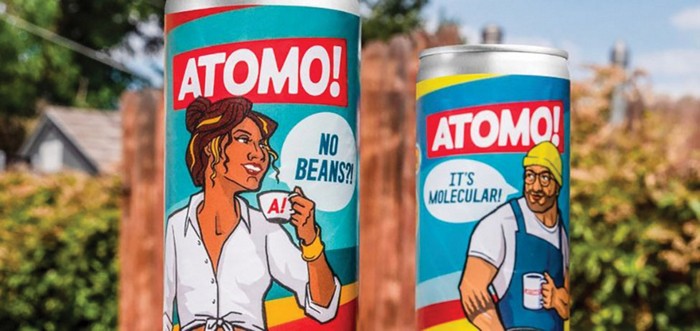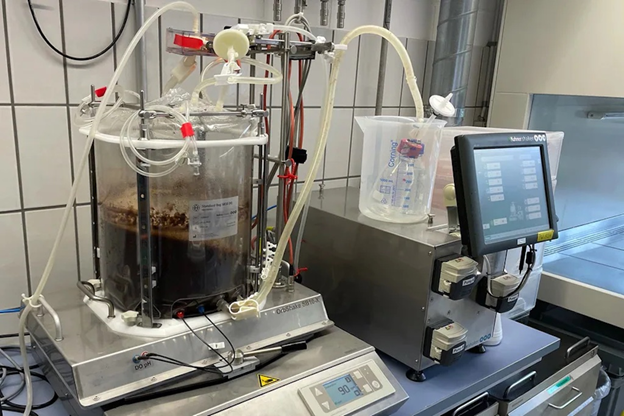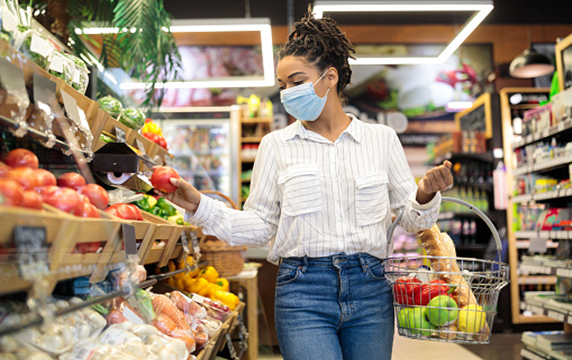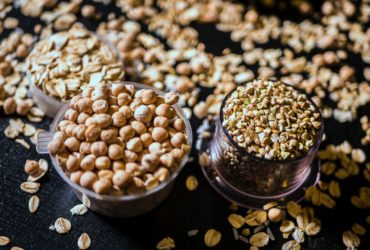By Alexander J. Taylor
It’s been a bit of time since I wrote an article for Science Meets Food and boy-howdy, does it feel good to be back. My last article, back in April, talked about the exciting new prospects of taking food to the next dimension. Recently, there has been a lot of talk… A lot of hub-bub surrounding a new trend in food science. As the world starts to, hopefully, come out of this pandemic, there has and will continue to be a heavy introspection on our food supply and food systems. With the pandemic, humans everywhere were limited to resources that were previously thought to be limitless. New and innovative ways to create food emerged from this pandemic; and millions of consumers are demanding for a new wave of food! From sustainability to nutritional benefits, consumers are eagerly awaiting breakthroughs.
One of the largest challenges is dealing with the current food supply. Various fruits and vegetables can only be ascertained from international sources and areas, yet consumers expect to see those products every single time they step in a grocery store. However, acquiring those products comes with a heavy price and a large carbon footprint, due to all the transportation and logistics. What if there was a way to make that exact same product, but without ever using the original source? Within the past decade, there has been a major focus on cellular agriculture for meat, but what if that sort of technology is applied to other products? Well one company, in 2018, wanted to tackle one of the largest industries in the world.

Image by ATOMO
ATOMO (a-tomo) Coffee started up their process in 2018 with the goal to make a “better cup of coffee, without the coffee.” ATOMO, a food technology start-up company, is made using upcycled ingredients of sunflower seed husks and watermelon seeds to undergo their patented process to mimic the aroma, mouthfeel, and flavor profile of coffee. Due to climate change, poor land conditions, and the low-income population, coffee beans will be harder and harder to acquire as time goes on. Coffee has a very deep and personal connection to a lot of cafe-goers, which makes it tricky for ATOMO to meet those same expectations. However, their recent valuation has put them at a $9 million dollar funding round and almost $3 million raised. With a $12 million backing, ATOMO has large shoes to fit to make that perfect cup of joe. Just this past week, ATOMO just released its first, limited supply, Molecular Cold Brew, which sold out within minutes! The best part? ATOMO is not the only ones working on innovative technologies.

Image by ATOMO
Just a month ago, a researcher at the Zurich University of Applied Sciences (ZHAW) in Switzerland had made their own lab-grown chocolate. Professor Regine Eibl, the head of the cellular-culture division of ZHAW, worked with Tilo Hühn to extract cell cultures from cocoa beans. This process is similar to the one with cellular meat where the cocoa is incubated in a culture medium for 3 weeks. Once a “callus” grows on the beans’ surface, they scrape it off and put it into a suspension culture to multiply until the researchers have enough to make samples of chocolate.

Image by SwissInfo: Bioreactor that ZHAW researchers are using to make lab-grown chocolate.
Once the researchers have enough sample, a powdery substance is left that can be roasted, then mixed with cocoa butter, sugar, and lecithin, and create a 70% dark chocolate with various flavor profiles. The researchers state that their own first samples taste like red berries and are a little acidic in taste. Just like with coffee, climate change has affected the regions where cacao grows. Paired with deforestation and slave labor, the social and environmental issues with cacao and coffee have really sparked scientists to find ways to solve this looming problem. With the rise of meatless meat, eggless eggs, and dairy-free dairy, there will soon come a time for cocoa-free chocolate, coffee-less coffee, or the next big start-up!
Our food systems have taken a beating these past year and a half. Our mental, physical, and emotional well-beings have been stretched beyond belief. As we continue to venture into new territories of food innovation, we must be cognizant on how to positively impact consumers and the farmers that rely on these sources of income. Food systems are not just singular spin-offs, they mesh and bind together, affecting one another; change one cog, and the system cannot function the same. While ATOMO and ZHAW’s contributions are massive, there still stands the problem of creating carbon-neutral or carbon-negative products that can help humans all over the world. Yes, deforestation is horrible, child/slave labor is bad, and animal agriculture is a major factor of climate change, but we have to find the right balance to not upheave the farmers that work to produce the food we want and need. Who knows what wonders we will find around the corner and explore in the unknown.

A.J. Taylor | Linkedin
Senior SMF Blog Writer
A.J. earned his degree in Biochemistry from Judson University and his Master’s in Food Science and Human Nutrition from the University of Illinois at Urbana-Champaign. His research then focused on Listeria monocytogenes, but has now transitioned into a Ph.D. program at UIUC in the hopes to discover more about the cocoa bean fermentation process using genomic, bioinformatic, and biochemical tools to define chocolate flavor from start to finish. A.J. emphasizes on the importance of science communication and loves to discuss multiple topics in the Food Science realm. A.J. is also an avid gamer from board games to video games, as well as a podcast-lover, if you have any recommendations, he is all ears!






Leave a Reply